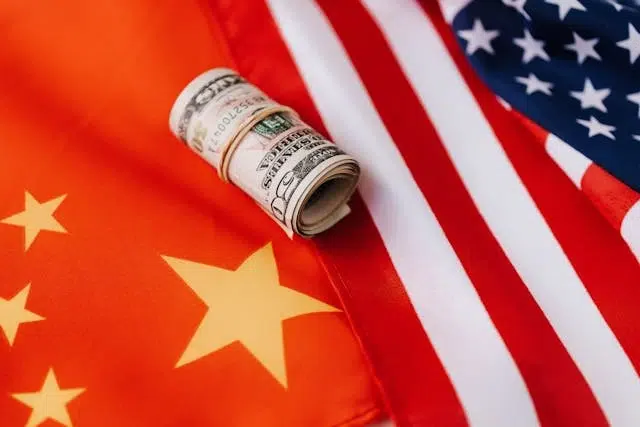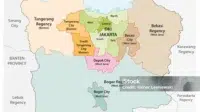The US-China trade war has been a major global concern in recent years. Although the war is between two of the world’s biggest economies, its secondary effects are experienced in most developing nations, including Indonesia.
As an Indonesian student, I am in a dilemma. On paper, the situation looks to have advantages and disadvantages, but the more I dig, the more it seems like I am stuck in a lose-lose situation.
There are some undeniable economic benefits, but there is a price tag that threatens local businesses and long-term stability. That’s why I’d rather look at this trade war as a burden rather than a blessing for Indonesia.
Some of the Chinese companies have shifted their base to Indonesia to avoid large US tariffs, with commitments of new investments and jobs.
A 2024 report by the Rhodium Group even lists Indonesia as a top destination for Chinese investment in renewable energy and electric vehicles.
This may seem like a positive development on the face of it. But these investments are not without issues that have to be ignored, particularly for our tiny local enterprises struggling to survive amid a flood of low-cost imported goods.
The migration of Chinese factories to Indonesia has most certainly created job opportunities and reviving economic activity in certain sectors, especially industrial regions such as West Java.
This is supplementing infrastructure development and foreign investment growth, which are fundamental towards national development.
But the negative side of the trade war is as strong, or stronger. The massive amounts of cheap Chinese goods, especially through online shops, have battered Indonesian products.
Local manufacturers and small business merchants are increasingly having difficulty competing. The Chinese products are frequently offered at prices much lower than those of locally made ones, even if quality is questionable.
As a result, more and more Indonesians choose imported goods over domestic ones. The Indonesian Business Competition Commission (KPPU) has already raised concerns about the unfair market conditions this creates.
From what I’ve seen on TikTok and in my daily life, many Indonesians are selling and buying thrifted clothing, second-hand clothes that are often suspected to be textile waste from China.
These clothing are being offered at very cheap prices, and most people buy them because they are cheap and still functional. They do not care about the quality or where they are made.
But Indonesia actually has a lot of quality domestic fashion brands, though maybe quite expensive. However, I believe it is worth compromising on quality and sustainability rather than just choosing what is cheap.
The prevalence of second-hand fashion may be an indicator of a greater issue: our growing dependence on imported goods, even if they’re technically nothing more than rubbish.
This reduces the reputation of Indonesia as a dumping ground for cheap or excess foreign products. If left unchecked, this might hurt our domestic industries, increase our dependence on imports, and make our economy brittle.
Left to operate unfettered without strong regulation and policy response, the long-term effects might be detrimental.
Personally, I believe that I find myself in the middle of two unpalatable options. Yes, the US-China trade war has its strengths, like jobs creation and investment, but these are not free.
There are costs, particularly for small local entrepreneurs and farmers, which are extremely high. And that is why, in my opinion, I think Indonesia is on the losing end of this global confrontation.
It is not being anti-investment or anti-trade, but cognizant of the imbalance we now experience.
Read More: Konflik Laut China Selatan dan Dampak pada Nelayan Lokal
The government needs to act wiser. For instance, stricter quality controls over imported products and greater assistance for local industry would level the playing field.
We should not be shortsighted in the interest of quick gains to overlook the long-term risks. With wise policies alone can we prevent this trade war to become a risk and make it a real opportunity for Indonesia’s future.
And as consumers, we can make our contribution by being more mindful about what we buy and choosing to invest in high-quality, locally made products rather than just cheap ones.
Penulis: Wisudawati Amelia Putri
Mahasiswa Prodi Pendidikan Bahasa Inggris, Universitas Maritim Raja Ali Haji
Editor: Siti Sajidah El-Zahra
Bahasa: Rahmat Al Kafi
Ikuti berita terbaru Media Mahasiswa Indonesia di Google News















